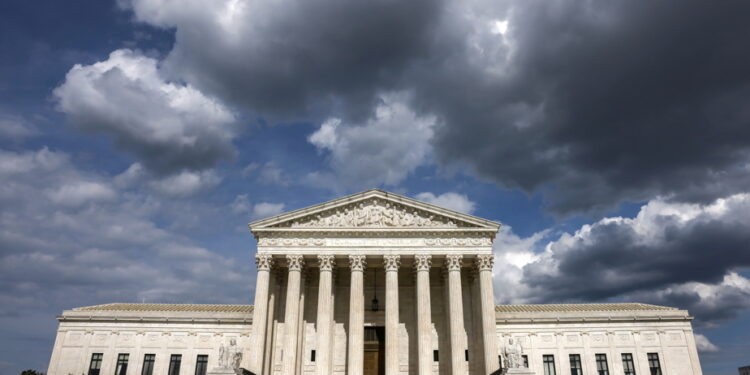Will African-Americans lose their electoral weight on the next election? The Supreme Court will look in the fall of a law to prevent the dilution of the vote of traditionally discriminated minorities. If the judges consider the unconstitutional measure, the states could redraw the map of the constituencies. Presumably to the advantage of the Republicans.
“If the Supreme Court invalidates this section of the law on the right to vote, the impacts will be seismic, the equivalent of an earthquake in political terms,” said Stephen Mr. Griffin, professor of constitutional law at Tulane University, in Louisiana.
Since 1965, the Voting Rights Act prohibits discriminatory electoral practices. Section 2 of the law guarantees in particular to certain minority groups the possibility of electing representatives of their choice. The law stems from the barriers put in place against the black populations in the old slave states.
Even if amendments to the Constitution had been adopted to guarantee the right to vote for African-American men after the end of the Civil War, for almost 100 years, states made the exercise particularly difficult.
It is this question that the judges will study in the fall: does the consideration of the ethnic composition of a region to delimit an electoral district in conflict with these same amendments of the constitution guaranteeing the equality of citizens, regardless of the color of their skin?
“The whole dispute revolves around the permitted use of the racial question,” explains Atiba Ellis, professor of law at Case Western Reserve University, in Ohio. “And there are people who take the position that it is never allowed to take into account the racial concepts,” he adds. Judge of the Supreme Court Clarence Thomas is of this opinion, and has been very constant in his opinions over the years. »»
“Dilute” the vote
The case before the Supreme Court comes from Louisiana. Federal judges ruled that the state had probably raped the Voting Rights Act With its redistribution of the constituencies, after the publication of the 2020 national census. The blacks then represented a third of the Louisiana population, but were in one of the six districts – a practice of cutting then denounced as an attempt to “dilute” their voices. The legislators saw the card, granting them the majority in a second constituency.
Voters defining themselves as “non-African-American”, which have become a minority in this 6e District continued Louisiana. Federal judges agreed to them, believing that the ethnic question had weighed too heavy in the decision of the legislators.
Each state follows its own rules to delimit the contours of congress districts. Some have an independent commission, others not.
The Supreme Court heard the cause in the spring.
But in a fairly unusual gesture, the judges delayed their decision, for a new round of arguments, at the schedule on October 15. They announced the 1er August that the questions would now relate to the constitutionality of the districts mainly made up of minorities.
“The decision could have had a lower scope and be resolved in a different way, without questioning the Voting Rights Actbut the Supreme Court has made it a very significant case, “notes Mr. Griffin, who judges that it is currently” the most important cause on the agenda “of the court.
Consequences
It is unknown when the decision is rendered. There is still a good chance that the question was decided before the mid-term elections, in November 2026, during which all the country’s 435 districts will vote for their representative in the congress.
If section 2 of the Voting Rights Act is considered unconstitutional, states could redraw the cards in time for the ballot of November 2026. Democrats could lose seats, a major majority of black voters supporting this party.
This would also be added to current redistribution efforts. In Texas, the new delimitations approved by the state majority of the state could give five more seats to the party of Donald Trump. The new card is challenged, under the Voting Rights Act.
The elected officials of the two majority black districts in Louisiana are also democrats – before the last redistribution, on 6e District was republican, like the four mainly white constituencies. These two elected officials are themselves African-American, even if the diversity of candidates is not an aspect addressed by the Voting Rights Act.
“To say things directly: the whites, basically, will not vote for a black candidate in the south,” says Mr. Griffin. It will also have an impact on representativeness in several other positions, because the district is used not only to elect representatives in the congress, but also for the state legislature, for elected judges, for elected officials in local positions. »»
The cause is part of a current of questioning of positive discrimination measures and concepts of diversity, equity and inclusion in the United States.
“To think that we no longer perceive the color of the skin and that it puts an end to racism is false,” says Mr. Ellis. I would even say that this is the opposite, it allows you to no longer have legal delimitation, to no longer have any accounts to be rendered on discrimination. »»



